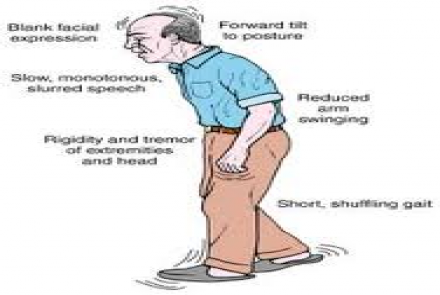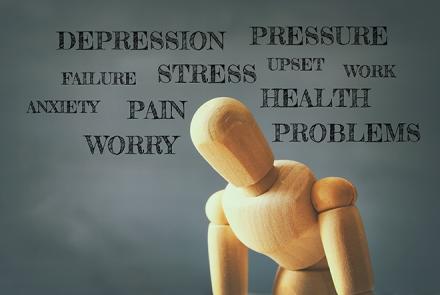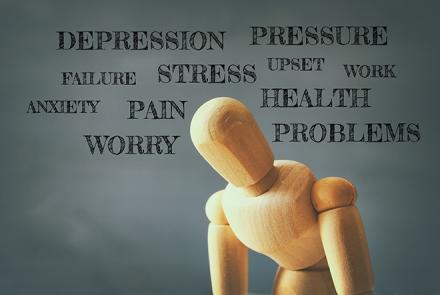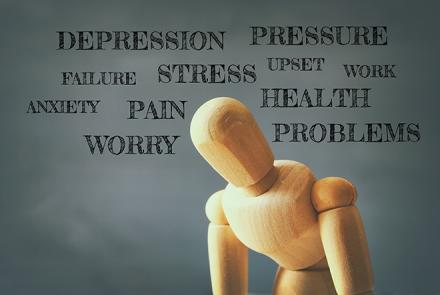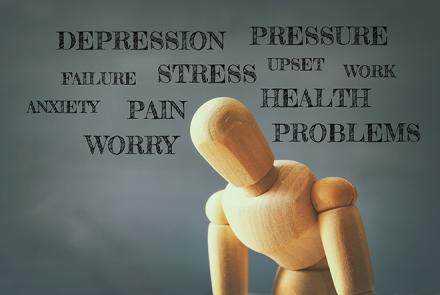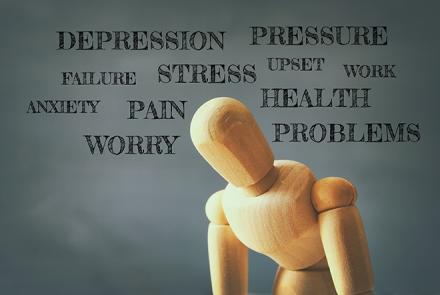
People with Parkinson’s may experience extreme sadness of mood and anxiety. This could be due to the Parkinson’s itself or due to the effects of the medication. It is important to acknowledge these emotions and to get the required help.
Depression
It is natural for everybody to feel sad at times, or to get upset by things. However, after a while or if they are put in another situation, then they may no longer experience these emotions. Sometimes, people tend to experiences these emotions for an extended period of time and their mood may not change despite being in a different situation. Along with this feeling of sadness, they may also experience a loss of interest in their work and activities, feelings of hopelessness, worthlessness and guilt, pessimism, increase or decrease in appetite and sleep etc. Such a condition is known as "clinical depression”.
If you experience such a state for a prolonged period of time (2 weeks or more) and it begins to affect your routine activities like work, sleep, appetite, physical activity and relationships, you must bring it to the notice of your doctor and seek help from a professional. A professional who will be able to help you with this would be a psychiatrist, a psychologist or a counselor.
Here are some ways in which you could deal with the depression:
- Exercise, as doing so releases endorphins which help improve your mood. You can take up exercise in any form like yoga, physiotherapy, walking, swimming, dancing etc.
- Take up a hobby, whatever makes you happy. It could be art, music, dance, traveling, praying, conducting prayer meetings, preparing for religious functions etc.
- Spend time with family members and loved ones.
- Share your thoughts and feelings with your loved ones.
- Be optimistic and reinforce yourself with positively framed statements.
- Focus on what you can do. An important point to remember is that, in periods of sadness and depression, you may not feel like initiating any activity, but it is imperative to take those first few steps. Push yourself in participating in activities that you used to enjoy and you will be surprised to see how energetic that will make you feel.
- Maintain a Thought Dairy - Whenever a negative thought occurs to you, jot it down immediately in your dairy along with what triggered this negative thought. When you feel better, review these thoughts and question yourself whether there are alternative, more positive ways to think. Example- You may have had difficulty in communicating clearly today (trigger) which made you automatically assume that you will have speech difficulties every day and that you will no longer be able to communicate with your family (negative thoughts). However, this may not be entirely true. You can reason with yourself that I haven’t really had speech difficulties every single day, they occur sometimes and I can always participate in speech therapy to improve its clarity.
- A little sunlight everyday- A minimum of 15-30mins sunlight exposure is an excellent mood booster. Aim to go out for a walk or sit in your balcony before 9.30am or after 4.30pm.
Anxiety
In our day to day lives, we all tend to feel worried, anxious or afraid of certain things or events that may occur. At times, some people might worry, be afraid or anxious without any clear reason for it and may be unable to control these feelings. It might affect and interfere with his/her daily activities and they may have physiological complaints of sweating, upset stomach, restlessness, increased heart beat, palpitations, and headaches. This is known as “clinical anxiety”. If you are experiencing these symptoms for an extended period of time, you must contact your doctor, a psychiatrist, a psychologist or a counselor.
Here are some simple techniques to deal with your anxiety:
- Meditation and deep breathing exercises
- Yoga and Physiotherapy
- Talking to others
- Use positive imagery to calm yourself. For example, imagine the waves of a sea brushing against the shore and retreating back into the waters. Imagine the pure golden sand shining in the sunlight.
- Postponing the worrying: Keep a specific time in the day for worrying and whenever you feel anxious during the day, remind yourself that you will worry only at that time for the decided amount of time.
- Positively reinforce yourself with positive statements.
- Distract yourself from the anxiety-causing situation.
- Look at the problem from an outsider’s point of view. Think about what you would tell a loved one if he/she was experiencing this.





